Dirty waters: Corruption infects global water services

Transparency International’s Global Corruption Report: misconduct rife in water sector
by C.T. Pope
Circle of Blue
From Manila to Milan, fraud, bribery and organized profiteering are rampant in the water sector says a new report by Transparency International (TI), a global non-profit aimed at exposing and preventing corruption.
The organization’s annual corruption report, presented last week in Stockholm, reveals the financial and human costs of water corruption.
Hardest hit are the world’s poorest, the report finds. In impoverished neighborhoods from Kenya to Honduras, residents pay unscrupulous water vendors and entrepreneurs ten to a hundred times the normal rate for access to water where municipal supplies fail. This price gouging makes the actual cost of water more expensive for the poorest in Nairobi than for the richest in London.
“Let me make a bold statement: corruption kills,” said Håkan Tropp, contributor to the study and chair of the Water Integrity Network (WIN), in a recent United Nations press conference. “To some of you it may sound very dramatic, but that is in fact the reality for millions of people around the world.”
From the slums of Jakarta to the suburbs of Atlanta, the global report highlights the pervasive nature of water corruption — jeopardizing food supplies, hydroelectric facilities and sanitation services worldwide.
“Water is a resource without substitute. It is paramount to our health, our food security, our energy future and our ecosystem,” said Huguette Labelle, chair of Transparency International. “But corruption plagues water management and use in all these areas.”
A global problem
While the report’s greatest emphasis is on the poor, it also catalogues misconduct in emerging and established economies. In China, for example, TI found that corruption undermines the effectiveness of environmental protection policies, abetting pollution and helping make nearly three-quarters of the nation’s urban rivers unfit for drinking or fishing.
Billing irregularities are a universal problem, too, with residents worldwide being improperly charged for services. In Kenya, for example, many residents report that even questioning a water bill from the city can result in the cessation of services. In the United States, the report spotlighted an instance in 2006 where the residents of San Diego were overcharged for sewer services — the surplus was used illegally to subsidize the sewage operations of large industrial users.
Small-scale bribery at the pipe occurs wherever water shortages limit supplies. In Port-au-Prince, wealthy residents pay to keep valves open longer in periods of drought. In Nairobi, 62 percent of water service consumers report witnessing or taking part in corrupt dealings, mostly in the form of bribes.
While localized pay-offs are largely a problem in developing economies or severely water-stressed regions, more complex corruption occurs in the allocation of contracts and the water management of large industrial cities, the report determined.
Water management officials in the municipalities of New Orleans and Grenoble have taken campaign contributions or gifts from contractors and subcontractors hoping to win city contracts or influence elections. In one case, a former official of the Chicago Department of Water Management was sentenced to nearly four years in prison for racketeering related to campaign contributions.
The financial costs are staggering the report said. Experts predict that corruption will increase the cost of meeting the United Nations Millennium Development Goals for water and sanitation by over $50 billion (€35 billion). According to Dr. Donal O’Leary of Transparency International, between 20 to 40 percent of all investments in the water sector are lost to corruption.
Water crisis: a crisis of governance, says Wangari Maathai
In her introduction to the report, 2004 Nobel Laureate Wangari Maathai of Kenya stressed the nefarious nature of water corruption: the exploitation of the poorest by the richest for a commodity that is vital to survival.
In an interview with Circle of Blue, Maathai underlined some of the challenges particular to her country’s water crisis by focusing on the link between deforestation and corruption via forestland “bribes.”
“For many years we have been trying to encourage the government to manage the forested mountains in East Africa more responsibly and more accountably,” she said, “and not to use forestland to give to their political friends or cronies, or to use that land for human settlements to appease communities or groups because they are political supporters.”
When the forests are cut down for development and agriculture the entire watershed suffers, Maathai said. “The more we encroach on our forests, the more we make ourselves very vulnerable … [because] the best harvesters of rainwater are forests.”
In East Africa, where water management projects and deforestation have significantly impacted the watershed of Lake Victoria — a transnational lake shared by Uganda, Kenya and Tanzania — problems of both corruption and general mismanagement plague the region. According to one report by the California-based environmental lobby group, International Rivers Network, Ugandan officials allegedly overdrew from the lake, causing a record 80-year low during early 2000.
Local management aids transparent spending
While the power of a single voice to fight organized corruption often fails, TI found that strengthening the voice of local communities and bringing water management down to the lowest levels of government can effectively curb corruption.
In Porto Algre, Brazil, bringing public discourse into water management budgetary meetings helped to bring drinking water to nearly all residents. Giving more weight to votes of the poorest in the region also facilitated the installation of sanitation facilities in the homes of the two-thirds previously lacking service. This type of transparent management is best achieved when local governments directly interact with community members, the report found.
The report also concluded that better education, greater awareness and increased accountability are necessary to counteract the influence of corruption in the water sector – problems that the international community has not yet confronted.
“Corruption’s impact on water is a fundamental governance problem, yet it is not sufficiently addressed in the many global policy initiatives for environmental sustainability, development, and food and energy security,” said Labelle of Transparency International. “This must change.”
C. T. Pope is a Circle of Blue staff writer and researcher. Additional reporting for this article was provided by Sarah Haughn. Reach them both at circleofblue.org/contact. Top inset photo by Sarah Haughn/Circle of Blue.
Download Transparency International’s full report: Global Corruption Report 2008: Corruption in the Water Sector
Circle of Blue’s east coast correspondent based in New York. He specializes on water conflict and the water-food-energy nexus. He previously worked as a political risk analyst covering equatorial Africa’s energy sector, and sustainable development in sub-Saharan Africa. Contact: Cody.Pope@circleofblue.org

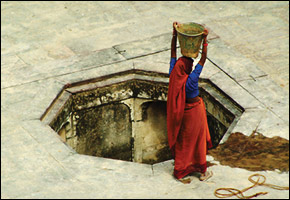

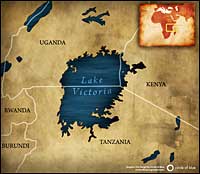


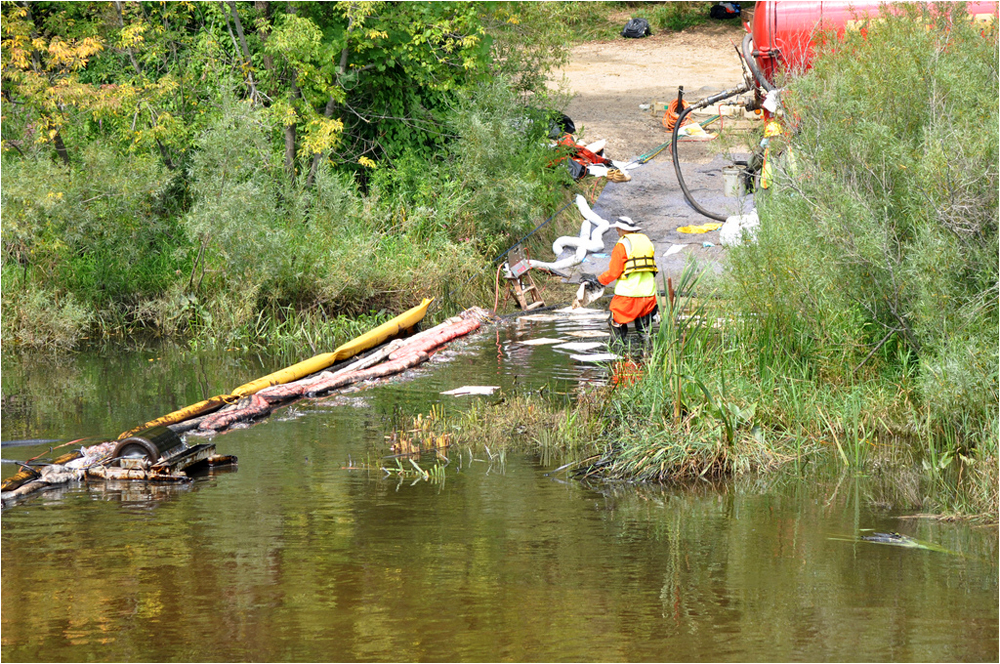
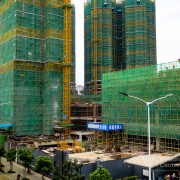
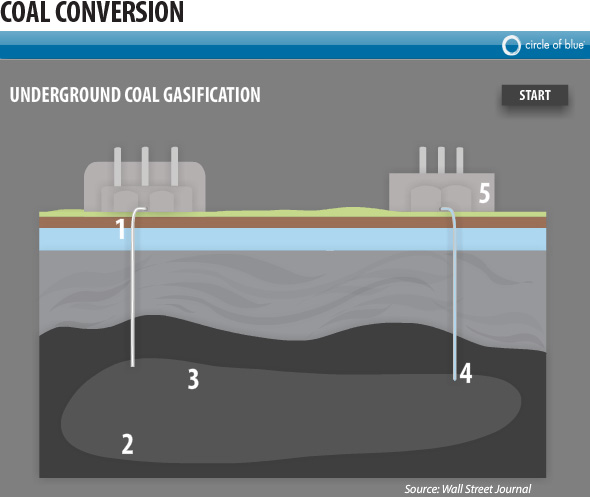


Corruption kills, says Hakan Tropp, a contributor to the Global Corruption Report on water. The recent flood disaster on the Kosi River, which killed at least 2,000 people in Nepal and India, is the latest example for the vicious cycle between corruption and disaster. See http://www.internationalrivers.org/en/node/3303/ for more details.